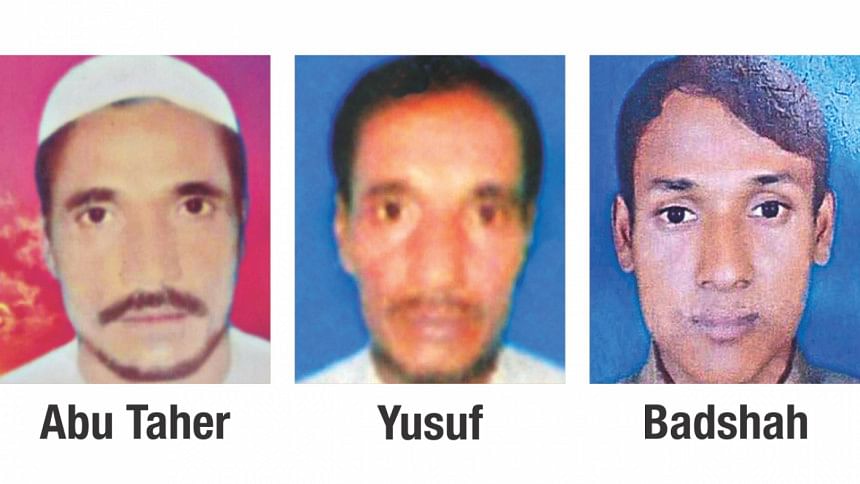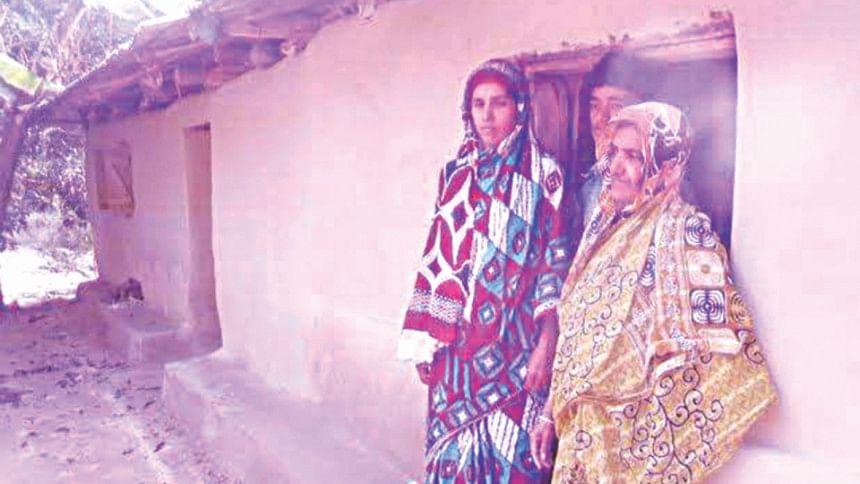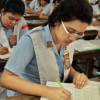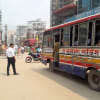Impossible to forget

For 91 days from January 5 to April 5 last year, there was hardly a single day when innocent people were not burnt to death or injured in arson attacks on public transports. Some lost their loved ones, others their lone bread earners during the longest spell of horror allegedly carried out by the BNP-led coalition, protesting the January 5, 2014, elections.
At least 95 people were killed and about 1,500 injured. Most of them were ordinary citizens. Another 45 got killed in "shootouts" with law enforcers.
One year on, the overall picture has changed but the ordeals of those injured and the families of those killed have not. The Daily Star visited over a dozen such families. Today's story is about how three families lost their lone bread winners in an instant.
Hopes of better days beckoned Abu Taher's family.
The day labourer from Chakaria of Cox's Bazar sold a small piece of land, mortgaged his homestead and borrowed some money from relatives to go to Qatar. It was all for making a living for his four-member family. And Taher was all set to make it happen.
But everything changed in an instant. Taher along with two other men from Chakaria was on his way to Dhaka to catch a flight to Qatar. In the midway, their bus was firebombed by suspected blockade pickets in the wee hours of February 2 last year. All three died instantly.
The two others are Rashedul Islam Badshah and Mohammad Yusuf, who were to catch the same flight with Taher.
"All our hopes and dreams are shattered. We're sunk in heavy debts now," said Nurjahan Begum, the 32-year-old widow of Taher.
"I have two children to raise and pay off the mortgage and loans, but I don't know how."
They had got Tk 2 lakh from the sale of land and another Tk 1.5 lakh from the mortgage. All the money was spent on Taher's trip.
"We are living at the mercy of our relatives. When he died, many people, including the local MP, police and journalists, came. But now no one cares," Nurjahan told this correspondent at her house in Gainkata village under Harbang union last month.
Although her second-grader daughter is still going to school, her son, a class-five student, had to drop out.
It was one of the deadliest arson attacks during last year's street violence. In total, eight people were killed in this attack on an Icon Paribahan bus that was coming to Dhaka from Cox's Bazar. Suspected blockaders firebombed the bus at Chouddagram in Comilla. At least 20 more were injured.
Although most of the arson victims received financial help from the government, Nurjahan got nothing.
She heard an announcement that she would get Tk 10 lakh from the prime minister's fund, but the money did not come. She said she even gave Tk 50,000 to some local people in bribe so she could get the money. But it did not work.
The families of Rashedul and Yusuf, the two other victims from Chakaria, had also mortgaged their homesteads to pay for their trip to Qatar.
Their families got Tk 10 lakh each from the government.

Rashedul's widow Sumi Akter said she was worried about the future of her two minor kids.
"What was the fault of my children? Why did they have to lose their father so early?" she asked.
Rashedul's mother Salma Khatun cannot understand why her son had to die. "He did not do politics. Why then he was killed this way?”
Yusuf, Taher's neighbour, initially did not want to go to Qatar.
"But I insisted him to go," said his wife Farida Khatun.
Apart from mortgaging their house, they sold their daughter's gold ornaments and borrowed some money from neighbours.
"Now everything is finished," said Farida, mother of five.
Her eldest son, Mohammad Rubel, now works at a shop. Another son, Khorshed Alam, stopped going to school and joined his brother at the shop. The youngest son, Sakib, goes to a madrasa.
Before his death, Yusuf married off his daughter Shamima. To help her father, she gave the gold ornaments.
"I hoped that once my father is in Qatar, he will take my husband there. But that dream is gone,” Shamima said.

 For all latest news, follow The Daily Star's Google News channel.
For all latest news, follow The Daily Star's Google News channel. 








Comments